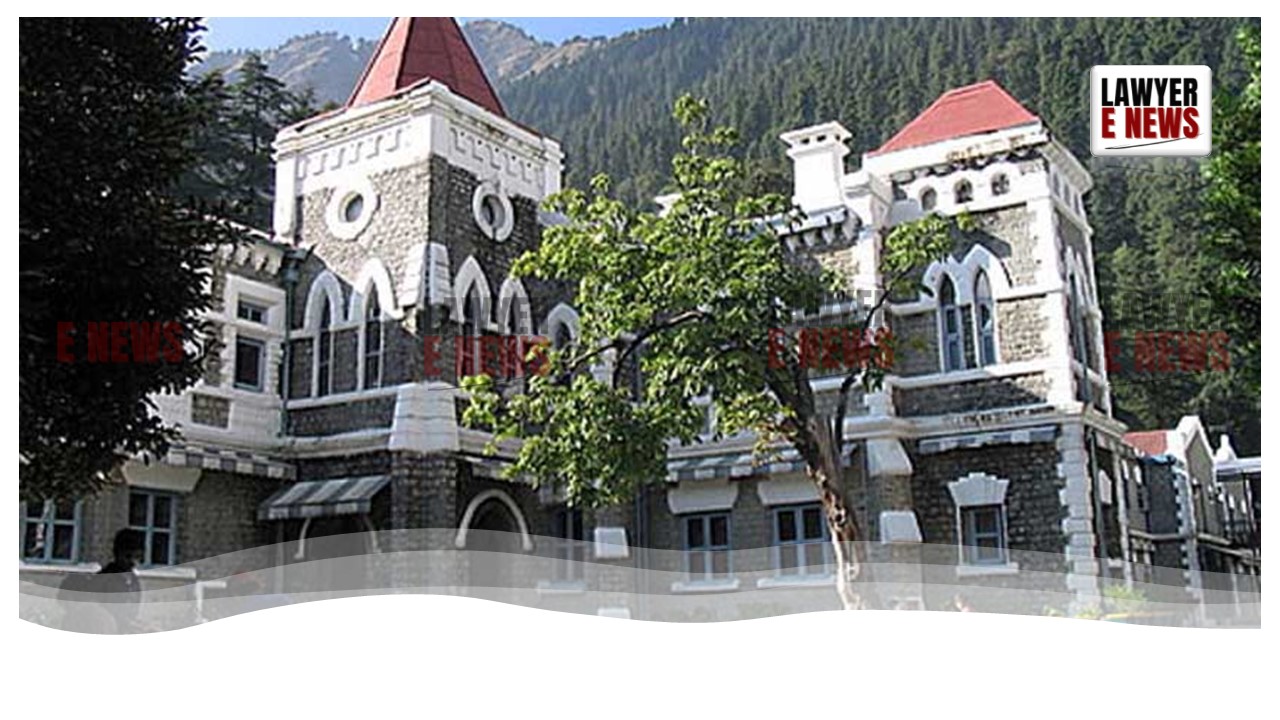-
by Admin
15 February 2026 5:35 AM



Conviction under Section 302 IPC altered to Section 304 Part II IPC; appellant’s sentence reduced to period already served
In a recent judgment, the Uttarakhand High Court has modified the conviction of Hoshiyar Singh, initially sentenced under Section 302 IPC for the murder of Somati, to culpable homicide not amounting to murder under Section 304 Part II IPC. The court emphasized the absence of premeditation, noting that the altercation occurred suddenly under the influence of alcohol. The appellant’s sentence was reduced to the period already undergone in custody.
The case dates back to June 9, 2012, when Hoshiyar Singh and the victim, Somati, both employees at different establishments, were involved in a fatal altercation. Somati, a cleaning worker at Petroleum University, did not return home, prompting his nephew, Sunil Kumar, and uncle, Sohanlal, to search for him. They were informed by Rajendra Singh, a gardener, that Somati was in Babulal’s garden, involved in a fight with Hoshiyar Singh. Upon reaching the garden, Sunil and Sohanlal witnessed Hoshiyar Singh striking Somati on the head with a stick. Despite efforts to find Hoshiyar Singh after the incident, he was apprehended later, leading to his conviction under Section 302 IPC by the trial court. The conviction was based on eyewitness testimonies, medical evidence, and the recovery of the weapon.
The court upheld the reliability of the testimonies provided by P.W.-1 Sunil Kumar and P.W.-2 Sohanlal, who witnessed the fatal altercation. “Both eyewitnesses consistently reported seeing the appellant strike the deceased with a stick, confirming the occurrence of the incident as described,” the bench noted.
In re-evaluating the evidence, the court found no motive or premeditation in the altercation that led to Somati’s death. “The evidence points to a sudden fight between the appellant and the deceased, exacerbated by the influence of alcohol,” the judgment stated. This critical observation led to the application of Section 304 Part II IPC, which deals with acts done without intention to cause death but with knowledge that such acts are likely to cause death.
Medical Evidence and Corroboration of Injuries:
Medical evidence provided by P.W.-5 Dr. N.K. Mishra corroborated the account of the attack. “The injuries described, including severe head trauma and fractures, align with the account provided by eyewitnesses and support the prosecution’s case regarding the cause of death,” the court observed.
The bench extensively discussed the principles surrounding sudden altercations and the influence of alcohol in criminal cases. “Given the lack of prior enmity and the circumstances of a sudden quarrel, the evidence supports a reduction of the conviction to culpable homicide under Section 304 Part II IPC,” the judgment explained.
Chief Justice Ritu Bahri remarked, “It was a sudden fight, which took place after all three friends, i.e., Hoshiyar Singh, Somati, and Rajendra consumed liquor. There was no intention for Hoshiyar Singh to murder Somati.”
The High Court’s decision to partially allow the criminal appeal and reduce Hoshiyar Singh’s conviction underscores the importance of context in criminal cases, particularly the influence of sudden quarrels and alcohol. By altering the conviction from murder to culpable homicide not amounting to murder, the court has set a precedent for considering the nuanced circumstances of similar future cases. This judgment serves as a significant reference for the application of Section 304 Part II IPC in incidents involving sudden, unpremeditated acts of violence.
Date of Decision:14th May, 2024
HOSHIYAR SINGH vs STATE OF UTTARAKHAND
